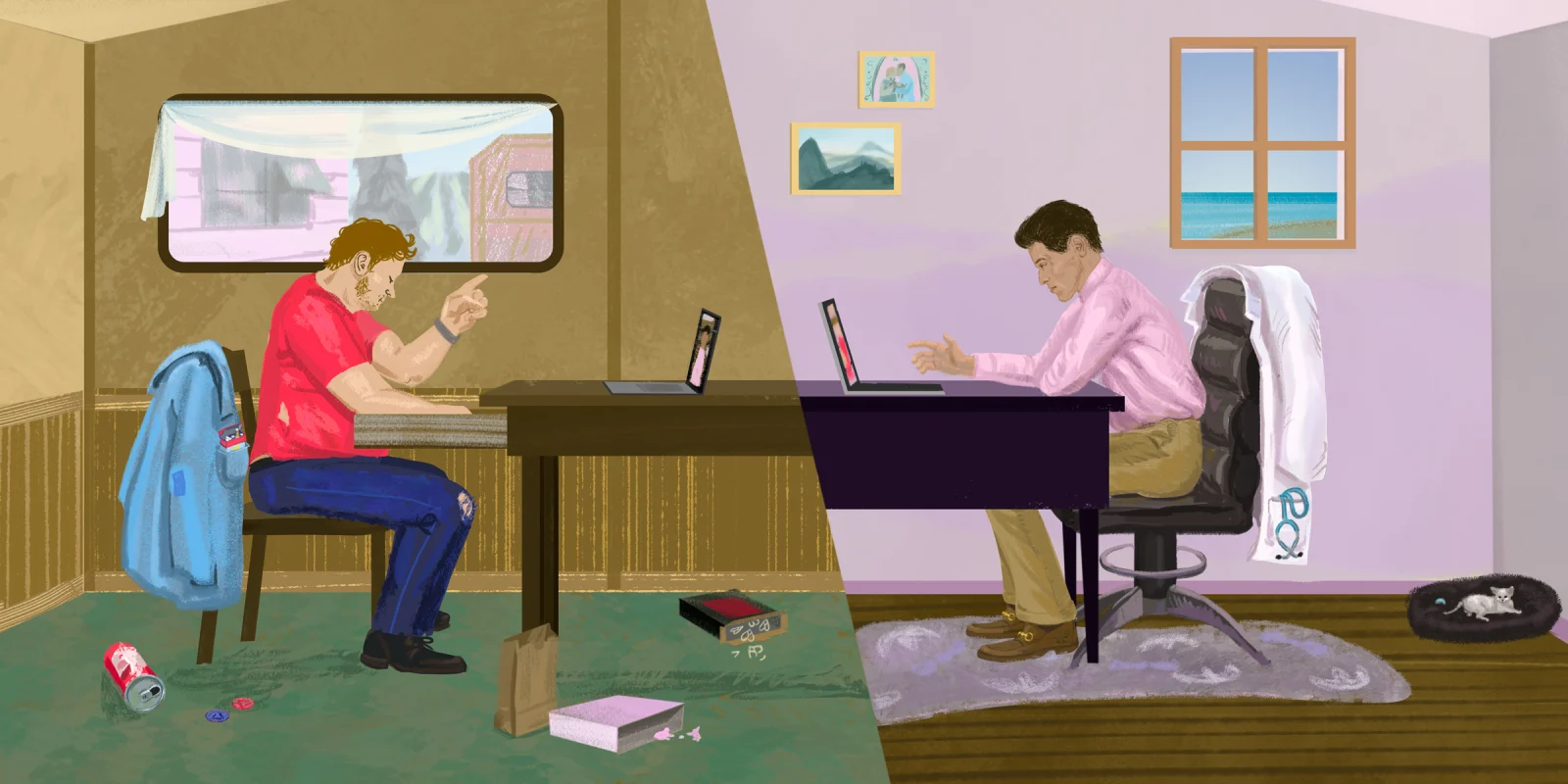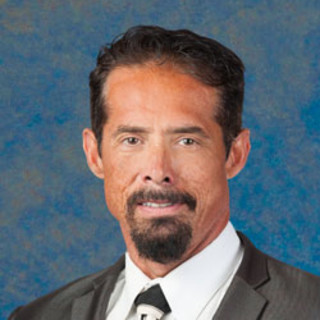Op-Med ran the “Hindsight Is 2020” contest in summer 2020. We are excited to announce this as the winning piece!
As a pain management doctor, I routinely use the Beck Depression Inventory Assessment to evaluate depressive symptoms in patients suffering from chronic pain. Typically, we furnish the patient with the questionnaire while they are waiting inside the examination room, and the patient fills out the form before ever seeing a physician. Once I'm in the room with the patient, I go over any areas for concern.
Telehealth appointments work differently. To avoid having to scan and send sensitive medical information by email, I go over the assessment questions orally with the patient at the outset of every appointment. That's what I was doing with Mr. McLeary when he got a bright idea. Mr. McLeary is a man in his 60s who lives alone in a mobile home park. He has no immediate family and very few friends, but that is how he likes it. He describes himself as a germaphobe and a loner, uninterested in meeting new people. He boasts of his independence, but he neglects his physical health, often ignoring my prescriptions for regular exercise and proper nutrition.
I started our appointment by asking the depression inventory questions. When I arrived at a question about whether or not Mr. McLeary had ever entertained thoughts of suicide, he furrowed his brow for a moment and turned away from the camera. I could hear him rooting around in a nearby drawer. To my dismay, he reemerged, holding a pistol.
Two weeks before the appointment, we had received word from our clinic administrators that the office would have to shut down in light of COVID-19. “No patient visits until further notice,” our office manager said. She was heartbroken to have to let go scores of our staff members. The future was uncertain. Still, I felt we had an obligation to continue treating patients — which is where telemedicine came into play. Several years ago, as the director of an anti-aging medical practice, I had contemplated offering concierge-style visits using remote technology. My team and I studied the possibility carefully, but in the end, the legal risks and liabilities outweighed the potential benefits. COVID-19 changed the calculus. We no longer had the luxury of requiring patients to walk in through the door. I'm a physiatrist, and our chronically ill patients needed regular treatment. They depended on the timely delivery of pain prescriptions, especially when warding off potentially catastrophic withdrawal events. And, luckily for our clinic, Medicare had already recognized the issue and temporarily loosened telemedicine requirements during the pandemic. Thanks to a crack IT team, we signed up with a telehealth portal and began daily virtual appointments. The first week went smoothly, marred only by a smattering of your typical technical glitches. Overall, I enjoyed the convenience of talking to and observing patients from the comfort of their homes. It felt almost like hopping on a video chat with friends and family. I had time to review patient medical histories without feeling rushed to dash off to another exam room. I was focused exclusively on the responses to my questions, and I was fully immersed in my patients’ well-being. In turn, the patients appeared more comfortable, at ease, unhurried.
The new arrangement came with anthropological benefits as well. I cued into the patient's surroundings. I noticed the color of the walls and the decorations. I spotted potentially hazardous household obstacles, gathering exponentially more knowledge about living conditions than I ever had in the office. But, I was ill-prepared for Mr. McLeary.
"Doc," he said, wielding the pistol. "I might be an old man, but I've got my means."
He continued, telling me about how he had been traveling the world since he was in his early 20s. "I was in Turkey during the ‘70s and all that mess over there. I saw the death squads murdering people in the streets," he explained, referring to right-wing ultranationalists of the time. "I learned you have always got to have a gun for self-defense." Then, Mr. McLeary paused. My jaw gaped wide open as he added, "I suppose I could answer your question by pointing this pistol up to my temple and blowing my brains out while you watch."
He twisted the barrel up near his forehead.
"I will not do that, doc," he said, lowering the firearm to the desk. "I have thought about it in the past. I will admit that. But I am not suicidal, and I've got no intention to end things today. If I ever become a burden to other people," he said, caressing the pistol, "well, then I might reevaluate."
My heart pounded against my chest. I was powerless to intervene. Mr. McLeary could probably tell I was nervous. When I asked him politely to please put the pistol away, he replaced it inside the drawer. I barely made it through the rest of the appointment.
Our insurance malpractice carrier sends me what seems like weekly updates about telemedicine's pitfalls and how easy it is to get sued for what happens on a call. Still, no one had told me what to do when a patient turns suicidal — in your line of sight but at a distance. I am accustomed to rendering aid and comfort in the exam room. What was I supposed to do over a video call?
In hindsight, Mr. McLeary taught me a valuable lesson, even if his teaching style leaves much to be desired. Telemedicine does not absolve us as doctors from the very human aspects of our patient interactions. Since that bizarre encounter with Mr. McLeary, I have made some changes. I start each call by asking for a physical address that I can use in case I need to send help. Also, I have established a direct emergency access line to contact my assistant. Finally, I always request an alternate phone number, preferably from someone close to the patient that I might enlist quickly if necessary. Thankfully, I did not have to use these safety measures in Mr. McLeary’s case, but I am glad I have them at my disposal now.
Dr. Francisco Torres was born in Seville, Spain, and graduated cum laude from the University of Puerto Rico in 1982 with a degree in biology. He then attended the University of Puerto Rico School of Medicine and was awarded his medical degree in 1986. Dr. Torres performed his residency in physical medicine & rehabilitation at the VA Hospital in San Juan, Puerto Rico, before completing a musculoskeletal fellowship at Louisiana State University Medical Center in New Orleans. He went on to serve three years as Clinical Instructor of Medicine and Assistant Professor at LSU before joining Florida Spine Institute in 1993. Dr. Torres is the author of five books.
Illustration by Jennifer Bogartz







